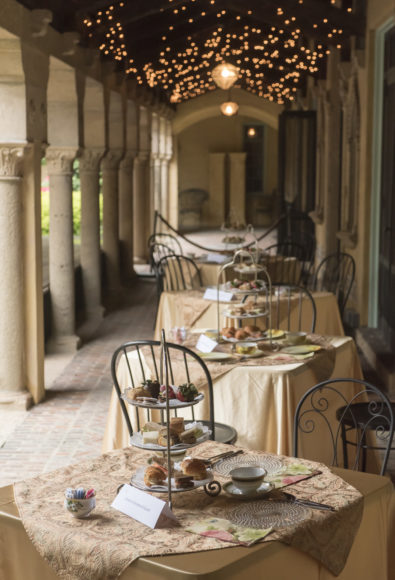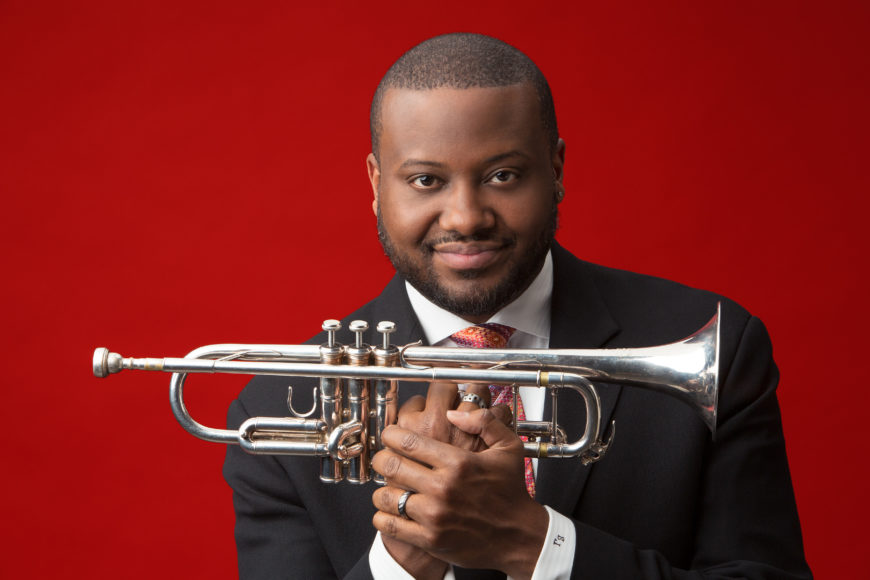(Editor’s note: On July 1, we’ll be debuting the latest incarnation of WAG, which will focus on local business and lifestyles. Since our article on Caramoor’s new president and CEO, Edward J. Lewis III, which will appear in that issue in a slightly different form, would miss the opening of Caramoor’s summer music festival, now back to in-person performances, we thought we’d give you a sneak peek at the new WAG while advancing the festival. As they say in the music biz, maestro to the pit:)
While other cultural organizations struggled financially during the pandemic, Caramoor in Katonah has thrived.
“I would say due to our Inspire, a Campaign for Caramoor, we have found ourselves in a strong position,” says Edward J. Lewis III, who was appointed president and CEO of the arts center on May 1. As a result of the eight-year campaign – which raised $41 million, mainly through individual donations but also through corporate, foundation and government funding – Caramoor has been able to keep all of its 30 employees on staff, quadruple its endowment and make major improvements to the 80-acre campus, like the new bandshell in Friends Field. (The center has an operating budget of $7 million.)
“This year we exceeded our figures for the first day of our members’ summer presale with a 44% increase over 2020 and a 110% increase over 2019,” Lewis adds. “That’s excellent news, and it tells us that audiences are ready to come back as well as just how much they value their Caramoor experience.”
Business as usual (sort of)
Last year, Caramoor offered a pandemic bright spot with its streamlined, digital summer season. This year, the seven-week festival (June 19 through Aug. 8) has a full complement of 35 live performances, with only the opening night gala – featuring the long-awaited appearance by trumpet virtuoso Wynton Marsalis and the Jazz at Lincoln Center Orchestra, postponed when Covid-19 hit – offered livestream as well. But there will be limited seating in the Venetian Theater and Friends Field, although that could expand, Lewis says, with revised state guidelines.
In reality, the Caramoor Center for Music and the Arts has been no stranger to change since its beginnings in 1946 with three concerts in the Music Room of the Mediterranean-style summer home of banker-lawyer Walter Tower Rosen and his wife, the former Lucie Bigelow Dodge, who played the theremin, an electronic instrument. (Their home is now the center’s house museum.)
Over the years as the concerts expanded and the festival grew in reputation, it has shifted from mainly European classical music to modern, American music with an American Roots Festival, a Jazz Festival, a Pops & Patriots concert for Fourth of July (minus the fireworks this year) and a 91st birthday salute to Broadway composer-lyricist Stephen Sondheim, also postponed from last year.
“We still have a nod to European classical traditions,” Lewis says, referring to appearances by Chanticleer, a male a cappella ensemble that performs everything from Renaissance music to jazz; the Philharmonia Baroque Orchestra; and various string quartets, including the Calisto Quartet, this season’s Ernst Stiefel String Quartet-in-Residence.
But increasingly Caramoor has embraced the new and experimental, as in the sound installations and sculpture that are vehicles for the public to explore its woods and gardens. In “The Forest,” Donald Nally considers the challenge of choral music in the time of Covid with a soundscape that visitors will follow at socially distanced intervals to hear singers placed 30 feet apart. John Luther Adams’ “Ten Thousand Birds” draws on different species’ birdsongs at various locations. Trimpin’s “In C,” a 16-foot-tall C-shaped frame supporting two octaves of chimes, will play works created by the artist and seven other composers.
For the first time, the grounds will be open free of charge, Fridays through Sundays, June 11 through Oct. 10, and there will be “Garden Listening” at a lower ticket price for certain Venetian Theater concerts. Picnicking will once again be available.
Can’t get to the festival or waiting to see how things shake out? The post-festival series (Aug. 13 through Sept. 12) features “Concerts on the Lawn,” spotlighting women performing mariachi, bluegrass and jazz; and “Beginner’s Ear,” bringing music together with guided meditation.
Leading from the middle
Overseeing it all will be a man who has always been musical. Lewis says there’s a photograph of him at age 2, sitting at a piano in his Washington D.C. home, “looking like I knew what I was doing.” After attending a concert of the National Symphony Orchestra, he tried his friend’s violin. “I wanted to make that sound. I had a natural affinity for the violin from the beginning.”
But he became a violist instead, earning his Master of Music degree in viola from the University of Michigan. (He also holds a Bachelor of Music degree from Northwestern University and attended the University of Maryland School of Music, where he studied chamber music with the Guarneri Quartet.)
Why the viola? “I love the sound,” he says. “It fit my personality. Without it, we wouldn’t have a string quartet or a Beethoven symphony. It leads from the middle. It changes tone and character at any given moment you ask it to, as in the Ravel Quartet. It jumps all over the place.”
As a professional violist, Lewis is a founder of Baltimore’s Soulful Symphony and a former member of the Dallas Opera Orchestra, Dallas Chamber Orchestra, Santa Fe Pro Musica, Sphinx Symphony and Toledo Symphony.
But as a self-described “lifelong learner,” Lewis has another side, one that is comfortable with fundraising and community relations. He served as senior director of development at The Clarice Smith Performing Arts Center at the University of Maryland, College Park. As vice chancellor for advancement at the University of North Carolina School of the Arts – the nation’s first state-supported arts school and a unique stand-alone university of five arts conservatories – he was involved in every aspect of growth, planning, budgeting, structure and policy.
Now he brings his administrative and artistic talents to Caramoor. He and his partner have settled into a house in nearby Chappaqua. The two also have an 1850 house off Maine’s North Bay.
But Caramoor, he says, taps into all of his other loves – music, nature and history.
Something tells us that Maine will have to wait. “At least until the fall,” he adds with a laugh.
For more, visit caramoor.org.



